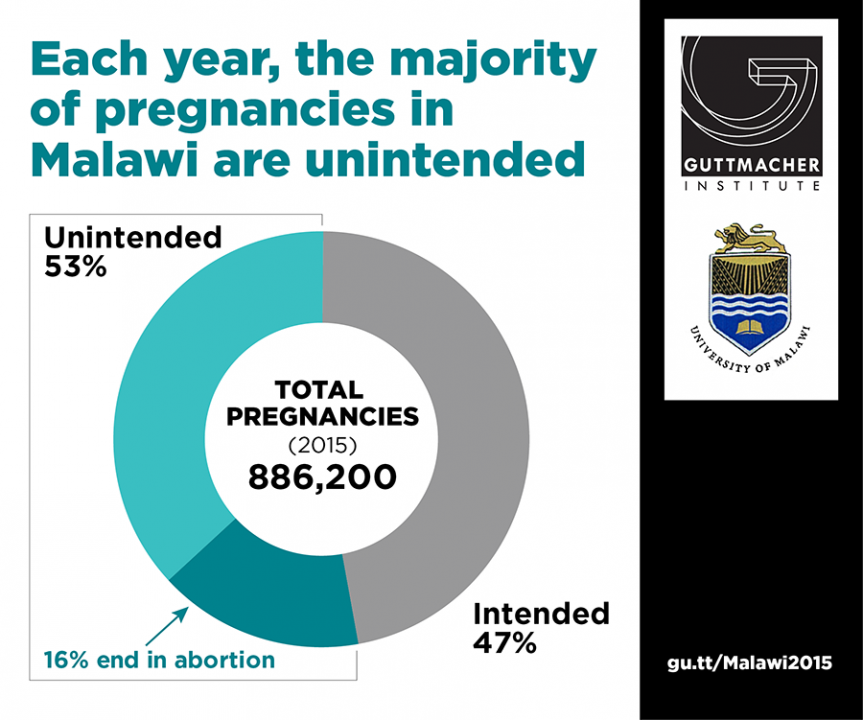
As Malawians continue to debate the enactment of the proposed Termination of Pregnancy Bill, other countries are making progress in abortion law reforms.
Commenting on the development in an interview on Tuesday, sexual and reproductive health activist Brian Ligomeka said Malawi should seriously consider expediting the enactment of its Termination of Pregnancy Bill.
“The Law Commission released a draft Termination of Pregnancy Bill in 2016. It is a pity that up to this day the bill is gathering dust in the offices of technocrats at the Ministries of Health and Justice,” he said.
According to Ligomeka, it was a pity that some countries initiated the process of abortion law reform after Malawi, but they have completed the process by enacting new abortion laws that are similar to the piece of legislation the Law Commission drafted.
“Just like the provisions of the proposed Termination of Pregnancy Bill, most countries are enacting laws that allow women to access safe abortions if unintended pregnancies threaten their physical and mental health and in cases of rape, incest, defilement and fetal malformation. Other countries are doing their best – giving women the freedom to make decisions that affect their reproductive health by offering abortion services on demand.
“Just imagine other countries in the region including Mozambique, Zambia and South Africa liberalized their abortion laws and yet here we are stuck with colonial laws enacted in 1930. We have an archaic law that is forcing over 141,000 women to seek backstreet abortions every year. The sad part is that even those who are raped and become pregnant are unable to seek services in the hospitals because of that outdated law,” he bemoaned.
Progress in other countries
His comments come afterColombia’s constitutional court recently decriminalised abortions within the first 24 weeks of pregnancy.
Under the new rules, no one will be prosecuted for having an abortion within that time frame.
Since 2006, abortions have been allowed in Colombia in cases of rape, when the woman’s life is at risk, or if the pregnancy is not viable.
Other countries that have reviewed and enacted their abortion laws recently include Ecuador whose Constitutional Court ruled last year that abortions in rape cases must be decriminalized.
In Africa, most progressive nations including Algeria, Botswana, Ghana, Mauritius, Namibia, Seychelles, South Africa and Tunisia have liberal abortions.

“It is surprising that here in Africa, the poorer the nation and the higher the illiteracy levels, the stricter the abortion laws. Perhaps, there is a need to investigate the correlation between poverty (and illiteracy) levels to the slow progress in abortion law reform,” Ligomeka observed.
Law reform
Alarmed by the increase in the number of women who die due to pregnancy-related causes, Malawi’s Ministry of Health requested the Ministry of Justice to review abortion laws.
As it usually does when reviewing old statutes, the Ministry of Justice tasked the Law Commission to review relevant sections of the Penal Code.
Following the review, the Law Commission compiled a report which embeds a proposed Termination of Pregnancy Bill that expands grounds for the provision of safe abortion.
According to the bill, once enacted by Parliament, women and girls in Malawi will be allowed to access safe abortion on the following grounds:
(a) when the continued pregnancy endangers the life of the pregnant woman;
(b) when termination is necessary to prevent injury to the physical or mental health of the pregnant woman;
(c) when there is a severe malformation of the foetus, which will affect its viability or compatibility with life; and
(d) when the pregnancy is a result of rape, incest, or defilement.
The draft bill is currently with the Ministry of Health, which is yet to table it in Parliament.
